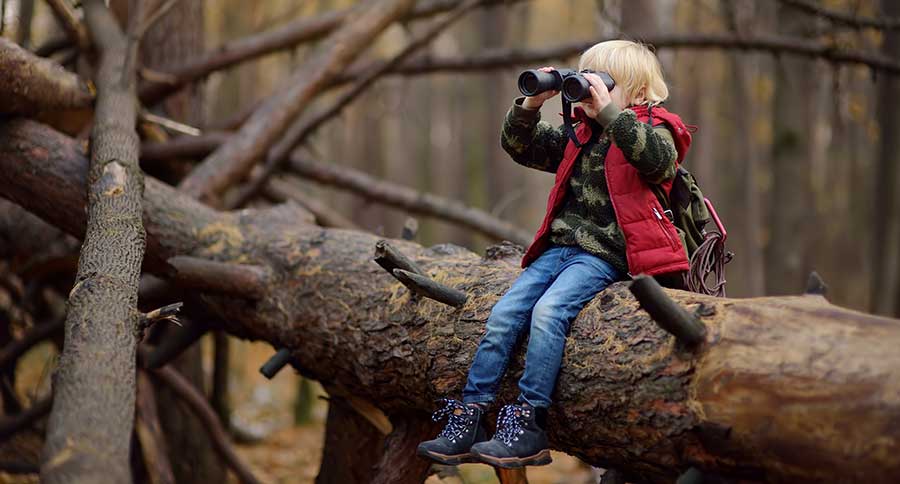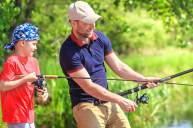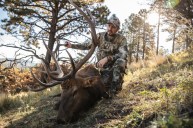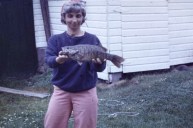Here are the tips the you need to help raise outdoor aware kids and help them thrive in the natural world.
Time for an honest question: When it comes to outdoor play, are young kids getting enough of an introduction to the natural world?
It may not be so much that the answer is no, but more so that the quality of the time spent in their natural environment is productive in even the most trivial way. Helping to raise outdoor aware kids is the key.
Some kids can have a sort of "nature deficit disorder." They might need a small nudge towards spending time outside and shown how much good it can do for them. Kids at a young age are sponges of information and there are plenty of things about the great outdoors to peak that interest level.
They just need some adult help in finding it.
Some family units may be veterans at taking well-planned trips to the backcountry. For those whose experience may not be quite ready for an off-the-grid camping excursion, a simple expedition to a State Park or National Park can lead to the kind of experience that a parent would really like for the young people in their lives.
Here is where a parent or guardian needs a gentle reminder that this time is for the child, or in particular, the family unit that has multiple children. Here is your chance to start a veritable summer camp of your own that can increase self-esteem and even bring out the best in your child, and all due to the outdoor world that you and I sometimes take for granted.
Let Them Learn To Be Confident
This is a great PSA from the Backwoods Mama that can go a long ways towards nurturing kids that respect the great outdoors, while simultaneously finding alternatives to fearing it. You don't need to be an amateur psychologist, just a teacher, and that's what outdoor parenting is all about.
It's important to take what you personally need from this good advice and try to garner a confident child, while still overseeing their safety. It is not about setting them loose to their own peril, but instead about getting them to think ahead to what a choice in the outdoors may mean for them.
There's no doubt that a slap-in-the-face by a twig or a ripped sleeve from some bramble taught us to be more aware in the woods. That's what we are looking for in a young person: a child that can look ahead and have a plan when they encounter something that they might not have seen before, or have little experience with. And doing that without the need for an immediate cautionary warning from us is the ultimate goal.
Kids can be foragers of the woods and fields in more ways than one. Fishing parents show their children how to use live-bait, but then comes the even more fun activity of gathering it.
Ask your kids things to spurn critical thinking. "What might else might be living under that rock?" for example.
The point is to teach a child to think ahead, whether or not they are in the woods or at home. Why? Because kids that can make their own decisions, especially when they have success making those decisions, can have a lot more love for the outdoors.
Getting Dirty Is A-Ok
The very second that our kids go outside, it seems that they get dirty. But if you ask, I bet your parents would say you did the same thing when you were their age.
Learning to accept that dirt is a part of a kid's outdoor education shows our young people a unique way to care for their world.
Kids begin to understand that there are creatures living in the soil, ones that are necessary to all our lives, right down to the beneficial bacteria. Now is not the time for them to be scared if it, but to be aware of it, Sometimes the best way for them to do this is to dig in and get their hands dirty.
While a child can't physically see all the fungi, algae, and protozoa in the soil without a microscope, what they can see with their naked eyes are common things like earthworms, ants, and other insects. These creatures are also some of the things that our favorite fish like to eat. At this point, the food chain lesson becomes pretty natural.
Getting dirty also helps teach the responsibility of making things grow, like vegetable gardens, berry bushes, or even trees.
Kids are hands-on learners, so it stands to reason that they will eventually find something to pick up. The frog or toad hopping through the yard or lizard crawling along the fence are great intros to backyard critters. But those are animals that have a tendency to let loose bodily fluids in their young hands. The key here is to let them dig in and feel it with their own paws, realize that it's all natural, and not be disgusted by it.
They will find out that a nightcrawler has a thick mucous coating that is very slimy, or that a minnow is so slippery it's hard to handle.
Kids connect with the outdoors in many ways, and getting it all over themselves may just be the best way to show them that it is fun and educational.
Outdoor Play
If you really want to make an outdoor aware child, then make the outdoors fun. Our minds and bodies work the best when they get some sunshine and exercise every day. That can be accomplished with a simple field trip to the fish hatchery, nature preserve, or State Park. Think up some easy questions for them to answer, or create a scavenger hunt. Make in involved and interactive, and you're one big step ahead.
Outdoor play also gives them a chance to be in charge of themselves while using their problem solving abilities. Consider when we were growing up and built tree forts, the precursor to every treestand we ever sat in, or a ground blind based on whatever we could find out in the woods.
The bottom line is that we did it by trial and error, not by instructional DVD. We learned to do these things based on our desire to escape the house and live outside like real frontiersmen, and it was fun because we made a game out of it.
It hurts to say it, but not every kid will grow up and want to hunt or fish. Remember that outdoor play is still extremely important. Don't force it, and don't be disappointed if there's little to no real interest in it. Just make it easy, encourage it, set them up to enjoy it.
Learning Outdoor Skills
It probably goes without saying that we will teach our kids everything that we know about the outdoors, especially how to survive in it. Maybe one of the most important of these skills is how to start a fire, and that can be as daunting for you as it is for them.
Even though we taught our children not to play with fire from an early age, responsible adults will find the right time to teach them how to start a fire and keep it going.
This is not so different from teaching a child how to shoot a gun; take away the mystery, how to get it started, handling it safely, and, of course, proper instruction.
Self-sufficiency starts with a willing attitude and an element of risk and danger, which is only a dangerous thing if they are not exposed to it at an early age. Give kids the benefit of the doubt when it comes to their ability to learn these skills and they will surprise you with their adaptability.
Why They Should Care For Nature
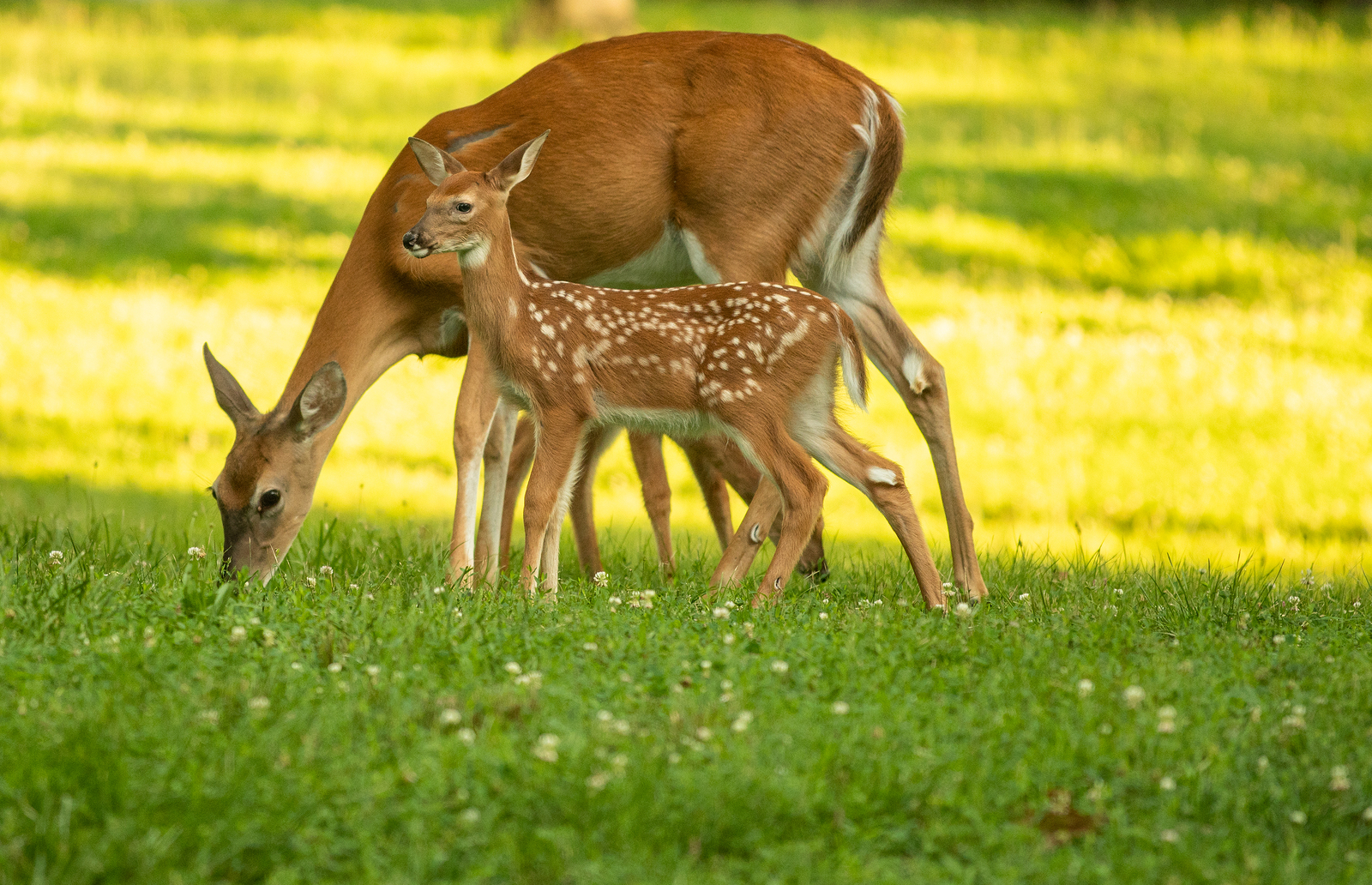
Outdoor aware adults know that there are closed hunting seasons for most of the calendar year, and yet there is a small but unfortunate part of our world that thinks hunters only want to hunt so that they can kill animals. This, of course, couldn't be more laughable, but it's often misconstrued.
For kids to understand, they need to be exposed to some real truths about our outdoor world and what it takes to survive it the way that hunters and other outdoorsmen do.
Teach kids that hunters and fishermen contribute to the funding of game and fish departments in every state. Without these hunting and fishing dollars that come directly from licensing, state agencies and programs that conserve and protect wildlife habitat could cease to exist.
Knowing these facts, kids can begin to see the light and realize why hunters and other outdoorsmen are so crucial to wildlife care and restoration. No one wants to see a more healthy population of wild game animals than we do. It just goes hand-in-hand with a healthy and viable resource.
The scientific community gathers a big part of its information about what's happening in the outdoor world through the feedback that they get from sportsmen and women. Yearly harvest totals of fish or game animals tell us a lot about their overall population and well being.
To kids, this simply boils down to an understanding of the differing reasons why they should care about nature from the bottom up. How do plants use the sun and rain? What animals use those plants and why? Why do certain animals do better one year as opposed to another?
If kids start to recognize these differences, they'll often grow to respect them. They'll see them as valid reasons why they encounter more or less animals from season to season.
Kids with this kind of respect for the outdoor world are our future wildlife and fisheries biologists, game and fish wardens, and of course, the hunters and anglers who help the scientific and regulatory community.
Learning outdoor skills such as how to start a fire or how to field dress an animal are some of the most important things that we can teach. But learning to care about their surrounding environment is paramount to having a future to enjoy!
There Doesn't Have to Be a Plan
Honestly, planning an outdoor excursion like a hunting or fishing trip is usually a moot point. We need to take some food, drinks, maybe sunscreen and a first aid kit, but thinking you'll win them over with a fabulous fish in the net or turkey on the ground isn't worth your time.
A hunting trip can sometimes turn into a shed antler or mushroom hunt, and a fishing trip can turn into a purposeful swimming trip really fast.
One of the best things that children are really good at is making up their own games. A child's own imagination can be an amazing part of their outdoor adventure, especially when we encourage them to let it flow.
When they can use their outdoor imagination in a positive way, it will make them yearn not only to be out there, but to stay out there.
Having little or no structure can be the beginning of child's journey through the outdoor world. It is a part of an adventure that they cannot get anywhere else.
Putting down the smartphone and becoming a role model for kids can be one of the best "learning activities" for a young person, and one that you can be proud of.
And it all takes part in the great outdoors.
Looking for a little more? Follow my webpage, or on Facebook and Twitter.
NEXT: HOW TO TEACH A KID TO SHOOT A GUN
WATCH
